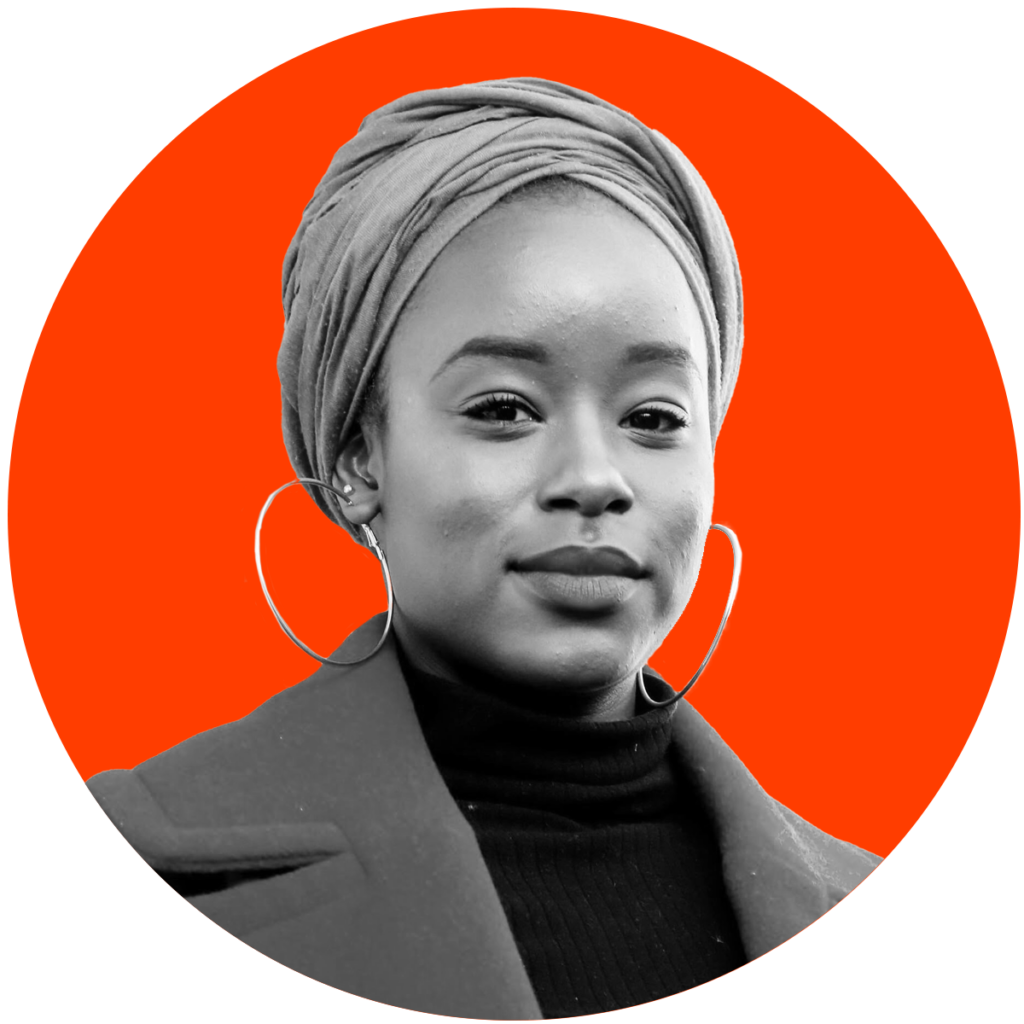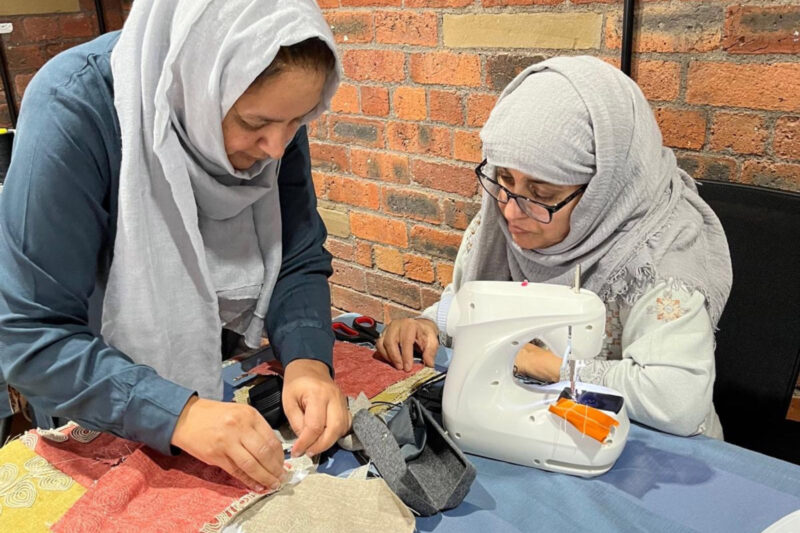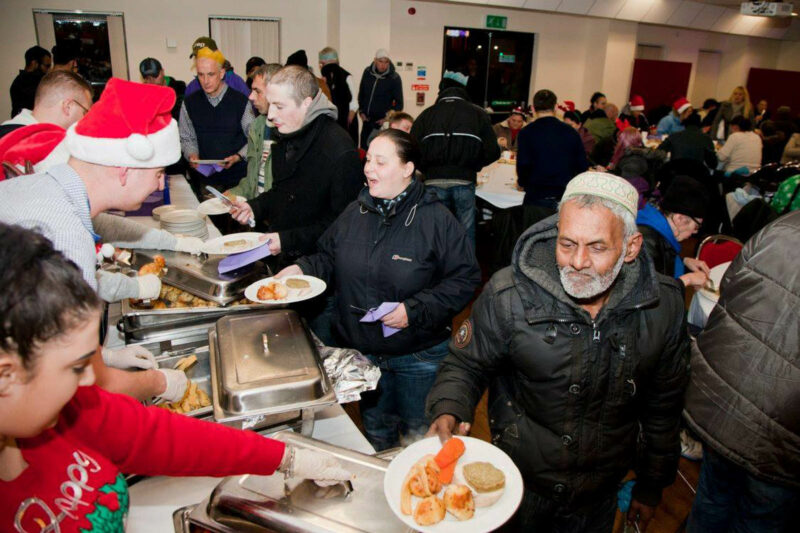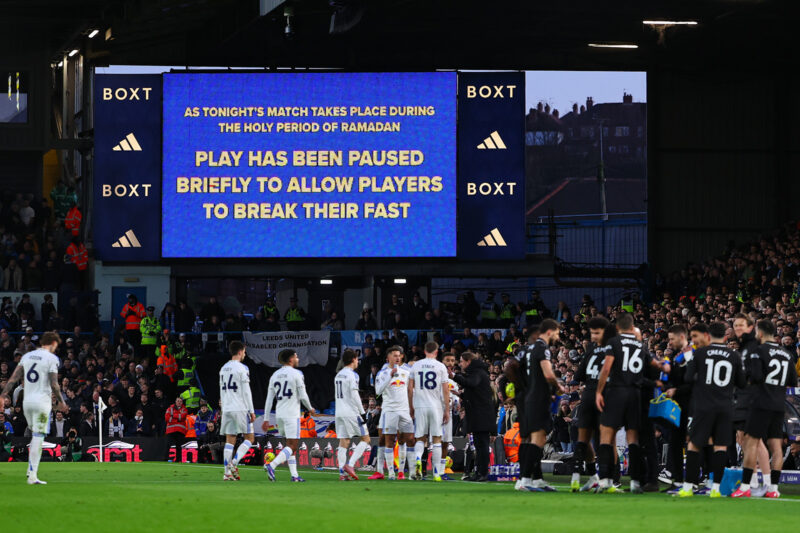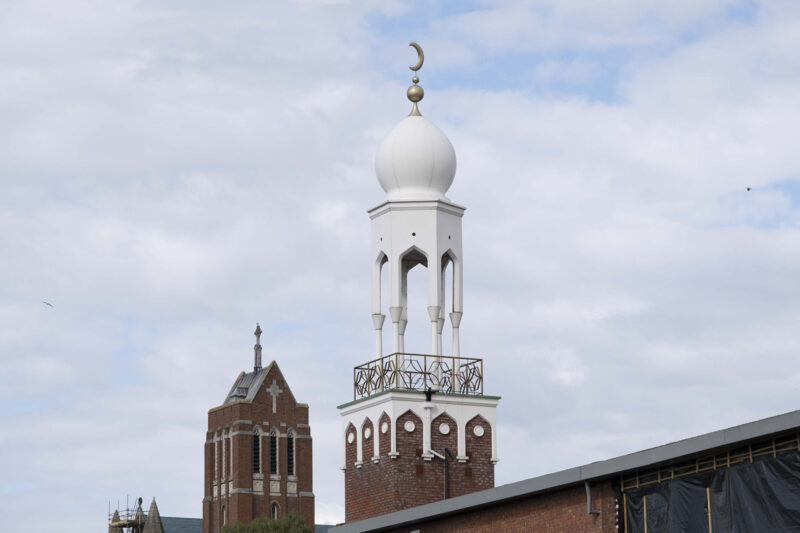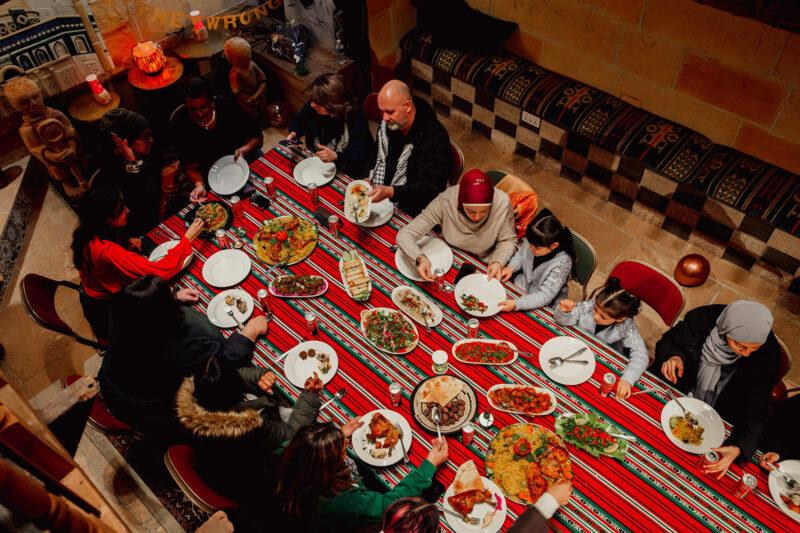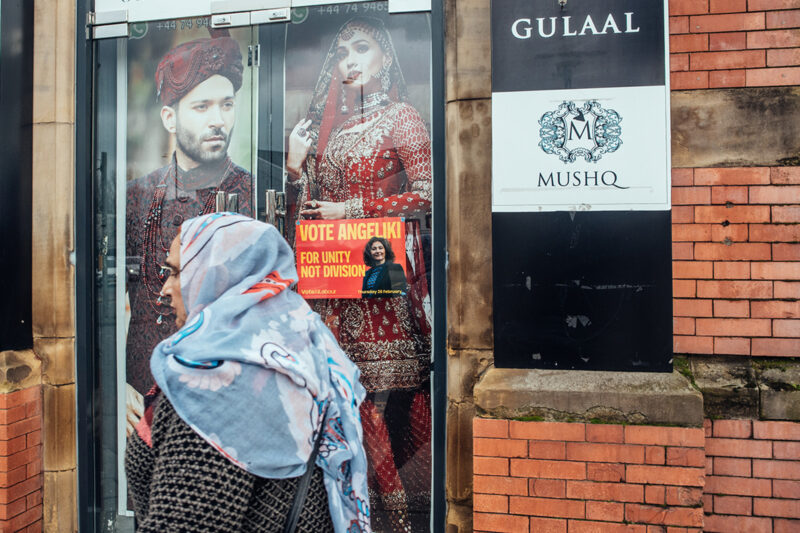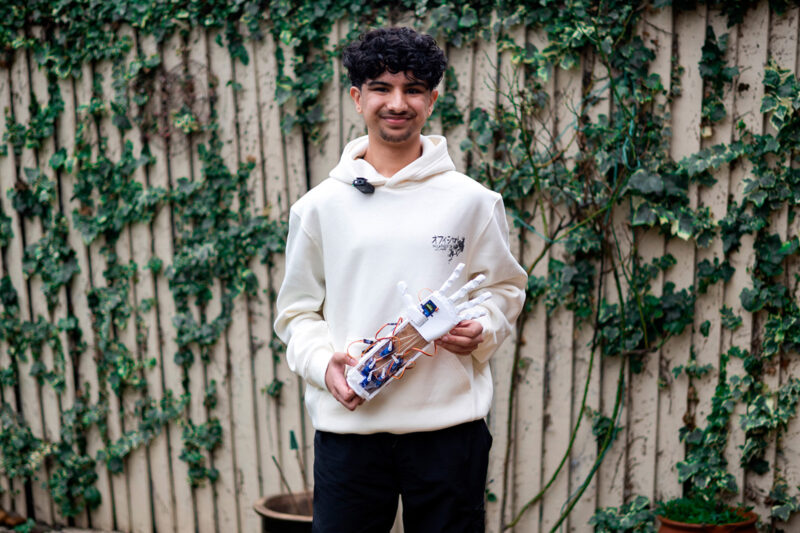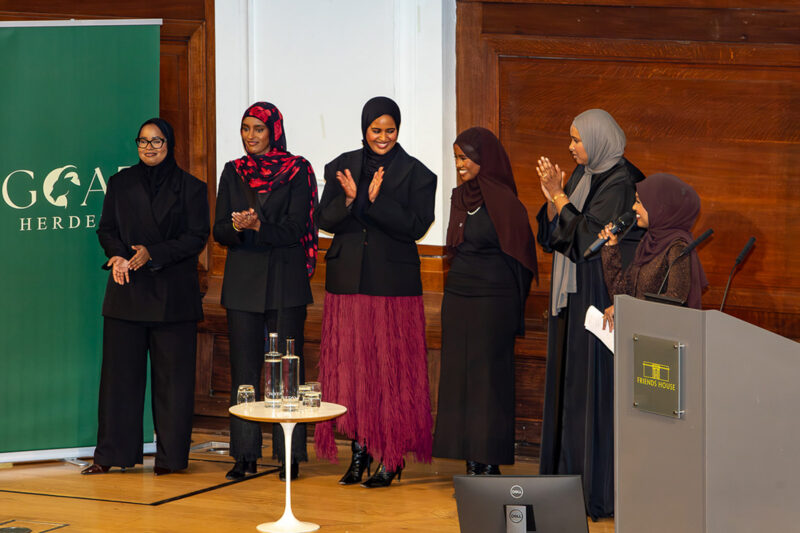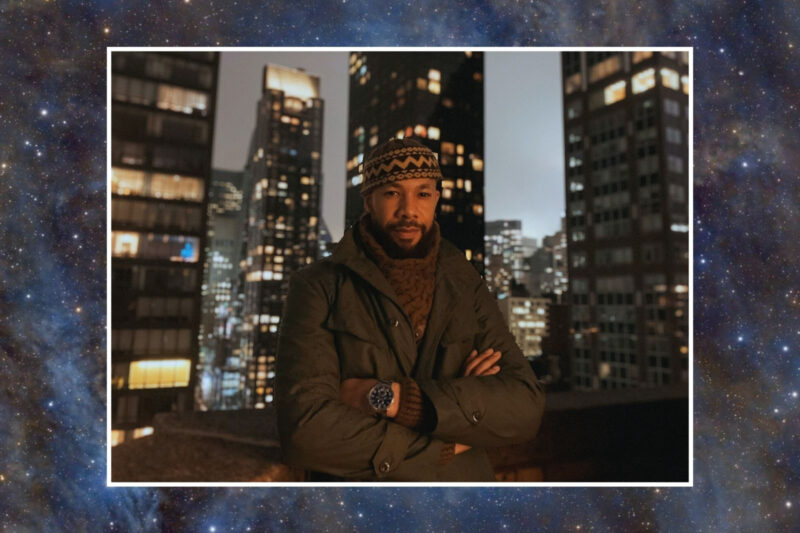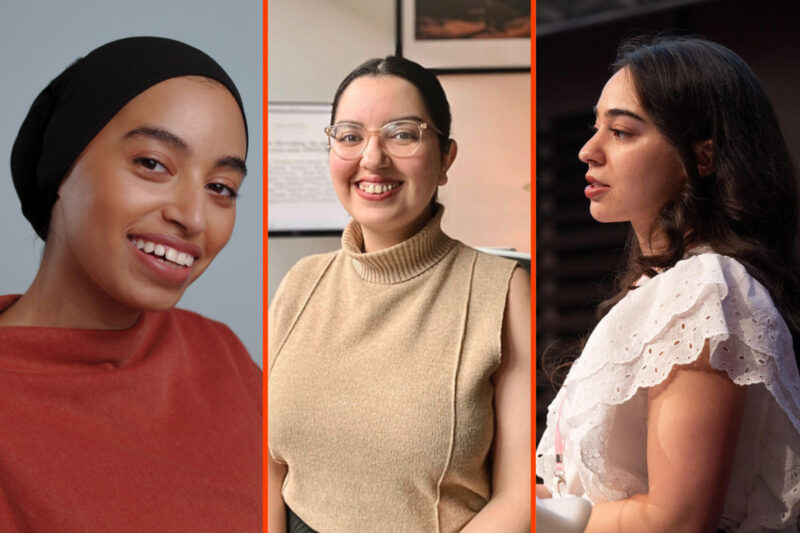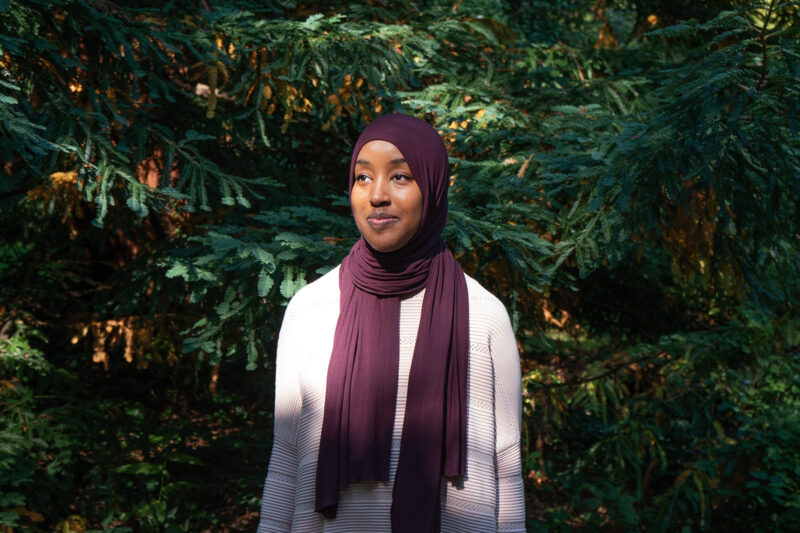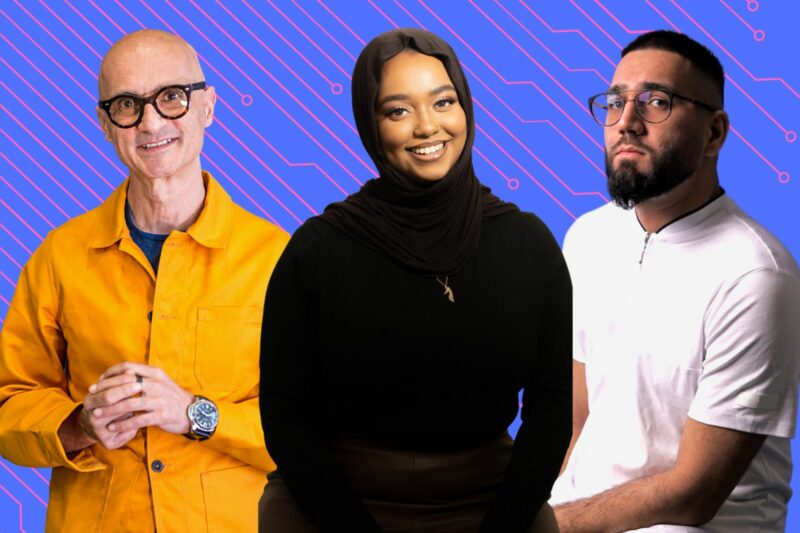Inside the Muslim community group bridging the digital divide
In the UK, more than 10 million people — many of them from ethnic minorities — lack basic digital skills. Now, help is at hand
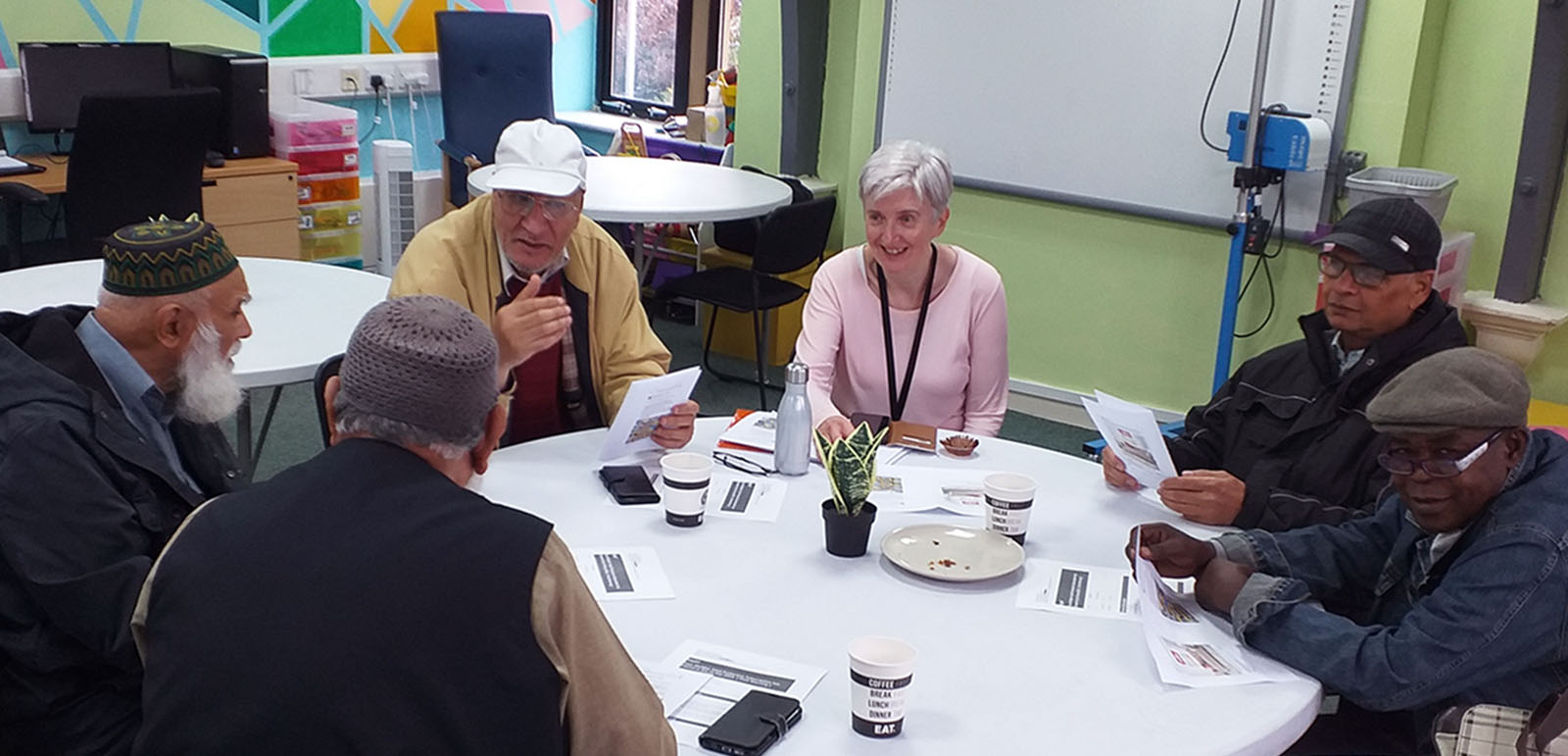
When Vijay Sehdev retired, he had a smartphone, but did not know how to use all the functions and often had to ask his children for help. “I would receive video messages on WhatsApp for my birthday from my family in India, but I didn’t know how to record my own video and respond,” he said.
The former market stall trader, 67, decided to use some of his hard-earned free time to finally get to grips with technology. Now, he attends a weekly digital skills session at the Hamara Healthy Living Centre, a Muslim-led community organisation in Leeds. During hour-long classes, he has learnt how to look up local bus times on his phone, set up an email address, and protect himself from online scams. As a result, Sehdev feels more independent and is looking forward to taking the next steps of learning how to use QR codes and booking cinema tickets online.
Sehdev is one of more than 10 million people in the UK who do not have basic online skills. According to a report by the Centre for Ageing Better, there is a significant digital divide between younger generations and people aged between 50 and 70. That was only exacerbated by the Covid-19 pandemic, when the vast majority of the population became even more dependent on the internet to stay in contact and do their jobs.
Data from the Office for National Statistics also shows that three million people have never used the internet. Of that number 32% are aged 50 to 69, and 67% are aged 70 or over, with usage lowest among ethnic minority groups. ONS data shows that 83.6% of adults aged 55 to 64 from an Asian background, including Bangladeshi, Chinese, Indian and Pakistani, had used the internet in recent months, in comparison to 93.5% of white people the same age. The number of users dropped to 29.9% for Asian adults aged 75 and older, compared to 47.6% for their white peers.
Hamara is one of many organisations addressing the digital skills gap among older people, in particular those within the South Asian community. Located in the Beeston area of Leeds, it runs multiple projects catering to the wellbeing and health needs of local people.
Since September, Hamara has delivered an online safety programme in partnership with 100% Digital Leeds, a Leeds City Council initiative. The Be Online Stay Safe (Boss) project aims to overcome the digital divide for older people in diverse communities, ranging from basic knowledge, such as how to send and reply to emails, to more advanced skills, including how to identify online scams and phishing emails.
At a women’s session in early November, run by Hamara’s project leader Nizamud Din, I joined four women from the local Pakistani community. Aged between 56 and 70, they explained that the previous week they had learnt how to send pictures and files via WhatsApp to family members abroad, as well as how to use the Google Translate app. As the level of English competency varied within the group, translation apps proved a big hit, allowing users to better understand official documents, letters and food labels.
“It’s like magic,” Din told one of the participants, as the app spoke a sample of scanned newspaper copy out loud in Urdu.
Flipping between Urdu and English, Din showed the group how to tidy the home screens of their phones by rearranging downloaded apps into folders. About halfway through the session, he was interrupted by a member of the weekly men’s group who had come to the centre looking for help on how to upload pictures to Asda’s online photo-printing service. Owing to the frequent requests for help he receives, Din also offers a weekly advice surgery where people can ask for assistance using digital platforms, from paying their council tax bills to banking issues.
Hamara began its digital inclusion classes just before the pandemic broke out. With the support of 100% Digital Leeds, it was able to buy tablets for its lending scheme. When the lockdowns hit, Din delivered the devices to the homes of participants, so everyone could keep communicating with one another.
‘We held yoga classes via Zoom and other exercise classes with health experts to keep our community active and to help with isolation. We also ran a small project making bird boxes. Our service users watched an instructor build one and then they copied them.’
As well as missing out on simple and cost-effective ways to stay in touch with friends and family at home and abroad, people can be shut out of vital public services by lack of digital skills. According to research by Age UK, most local authorities in England and Wales now strongly encourage users to access their services digitally and, in many cases, offer few or no user-friendly offline alternatives.
Ripaljeet Kaur is the BME dementia coordinator at the charity Touchstone, which offers mental health and wellbeing services to people across Yorkshire. She has seen how such challenges affect people, particularly individuals from Black, Asian and other minority ethnic communities, and those with disabilities.
“A lot of GP practices have started using an online system for patients to book appointments and many elderly people struggle to access those systems,” Kaur said over a recent video call. “The translation options are not straightforward. I don’t see how someone who doesn’t have IT skills and also doesn’t speak English as a first language can get online without support.”
As language can be a barrier to digital inclusion, Touchstone ensures that it delivers its help in languages that service users understand, including Gujarati, Punjabi, Hindi and Bengali. Also based in Beeston, the charity runs a weekly, two-hour cafe session for South Asian people with dementia and their carers. During the pandemic lockdowns, the initiative moved online and has continued to run both in person and via Zoom. During these time slots, Touchstone also conducts the Boss safety programme.
Back at Hamara, I met Shenaz Hussain, 67, who has been attending classes and volunteering at the centre since 2010. The digital skills sessions have helped her to overcome her fear of technology and, in the process, have opened up a whole new world.
“My confidence has improved and I’m no longer scared of anything,” she said. “I’ve been able to book a holiday for six of us ladies to Istanbul online, and now we’re planning to go somewhere else in the summer.”
 Newsletter
Newsletter

